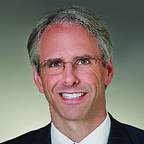Choosing (And Sharpening) the Right Tools For Your Practice
Part One: Processes, People, (and Computer Technology)
Introduction: Fear of a Brave New World
(These articles were originally published in the Richland County Bar Journal. Go read those articles, and other good stuff, here).
The Bar is all atwitter (pun intended) about the ways in which computer technology is affecting the profession. Some observers suggest that emerging technologies are throwing out not only the bathwater of the legal practice, but also the baby, the bathtub, and the plumbing.
For attorneys not riding this wave, the discussion of AI, ESI, Big Data, and the “urgent” need for change is disconcerting at best, and downright terrifying at worst. Fear may be an effective motivator, but only if you know where you are going and what you are going to do. Fear without a plan results in paralysis (head in the sand), denial (rapid technological change doesn’t affect what I do), and/or substance abuse (no explanation necessary).
And lawyers often respond to fear in that quintessential American way: by buying something that we presume everyone else is buying, in the hope it will address our anxieties and solve our problems. We buy without a thought to how a product or service will benefit our practices. Let me ask you this: when you bought the device you are checking right now, did you give even a second’s thought to how it would help you become a better lawyer?
“You can’t get what you want, ‘till you know what you want.”- Joe Jackson
As a result, when we don’t know what we want (or how we intend to use it), we end up with a lot we don’t want (and don’t use).
Don’t Let Computers Distract You From Your Essential Tools
Consider a different approach. Forget about computers. Computers are a distraction (and not just for the usual reasons) when it comes to getting better at what you do.
Lawyers use technology tools every day even if they never turn on a computer.
Here’s why: “technology” in every law office is much more than computers. Technology is the application of knowledge for practical purposes (look it up). Technology is the collection of tools we use to apply our knowledge to information. Computers are just one such tool, albeit a powerful one.
And no decision to buy shiny new tools (especially expensive ones) should take place without 1) taking stock of what you actually do; 2) figuring out how you are currently doing it; and then (and only then) 3) considering how you might do it better, using the appropriate tools.
This piece will look at the first part of this process, and future articles will consider the second and third.
Information and Knowledge is All There Is (Are?)
Information is the raw material for the practice of law. We collect, process, store, protect, and present information. We identify, seek, and exchange information in discovery or in the due diligence process.
Knowledge (legal mostly) is the value attorneys add to information. We take the information we learn (think facts), discern how best to use it, and present it in an appropriate form or forum. Pleadings, motions, and briefs are nothing but information and legal knowledge. Information and legal knowledge are the form and substance of transactions, wills, and whatever it is bond lawyers do.
The Tools: Processes, People, (And Computer Technology).
In representation and advocacy, lawyers use various technologies (tools) to organize and present information and legal knowledge: processes, people, and computer technology.
Processes
“If you can’t describe what you are doing as a process, you don’t know what you are doing.”-W.Edwards Deming
The practice of law is in large part performing various processes. A process is a series of steps (tasks) involved in organizing and using information and knowledge. Processes are accumulated knowledge performed over and over again to information. Every law office performs many processes: drafting documents, calendaring, running conflict checks, creating and maintaining files, protecting confidential information, etc. Getting a document into evidence is a process, as is qualifying an expert.
People. The effective use of processes requires people to perform them. A process that is not communicated, understood, and implemented where appropriate throughout an organization is more commonly known as a “missed opportunity” (bad) or a “problem” (worse). More bluntly, knowledge that is not “known” is not “knowledge”.
Conclusion: Let’s Talk About Computer Technology … Later
“The Internet? Is that thing still around?” — Homer J .Simpson
Of course computer tools are an important part of your practice. But understanding the roles of processes and people in coordination with computer tools is essential. To put a finer point on it: computers can only do what people tell them to do, and a bad process will only be made worse by a powerful computer. Recognizing the interplay between these three tools will help you develop a game plan rather than being overwhelmed by the pace of change.
Next up: evaluating your current tools.
